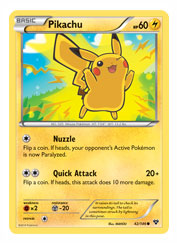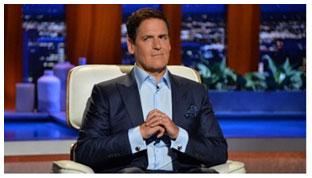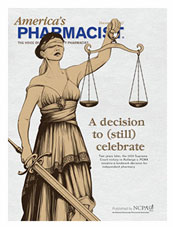Dear Colleague,
 I'm not much help to my youngest son when it comes to trading Pokemon cards. "Which Pokemon character is your favorite, dad?" Nolan asks. I always answer Pikachu because that's pretty much the only character I can remember. But watching him trade Pokemon cards reminds me of the basics of real negotiations—he wants a card his buddy owns, and his buddy wants a card he has. Horse trading talk ensues but the deal isn't done until both sides feel like what they are getting is a fair deal. Pretty much the opposite of insurance company-owned PBM negotiations with pharmacies.
I'm not much help to my youngest son when it comes to trading Pokemon cards. "Which Pokemon character is your favorite, dad?" Nolan asks. I always answer Pikachu because that's pretty much the only character I can remember. But watching him trade Pokemon cards reminds me of the basics of real negotiations—he wants a card his buddy owns, and his buddy wants a card he has. Horse trading talk ensues but the deal isn't done until both sides feel like what they are getting is a fair deal. Pretty much the opposite of insurance company-owned PBM negotiations with pharmacies.
 Bartering for goods or services started in Mesopotamia 8,000 years ago. Both sides benefited because they received goods and services that they wanted.
Bartering for goods or services started in Mesopotamia 8,000 years ago. Both sides benefited because they received goods and services that they wanted.
Recently the Mark Cuban Cost Plus Drug Co. has been reaching out to independent pharmacy owners to see if they want to learn more about the "Team Cuban Benefits Card." I wrote an open letter to Mr. Cuban last year, "A Maverick Idea: Changing the Pharmacy Payment Model," following his comment that he hated PBMs. I said that we agree on that point and may have other things in common including NCPA's mantra of "changing the pharmacy payment model." But, we disagree when it comes to using mail order pharmacy. It's worth a quick re-read.
For those of you investigating the Cuban Benefits card model to decide whether or not it's a good fit for your pharmacy, I'll share that one of the things I like about the Mark Cuban model is that it disintermediates the PBMs using the high-profile platform of a billionaire TV star.  I don't like that it focuses strictly on the prescription and expects independent pharmacy owners to continue to give away the valuable primary care services we provide for free. I'll also share my perspective that I think it's important to keep a close eye on the prescription transaction data—who controls its flow. And it's equally important to know your cost-to-dispense figure. NCPA, NACDS, and the National Association of Specialty Pharmacies commissioned their most recent national and state cost-of dispensing study in 2020. It makes good business sense to compare your COD to the results from the study.
I don't like that it focuses strictly on the prescription and expects independent pharmacy owners to continue to give away the valuable primary care services we provide for free. I'll also share my perspective that I think it's important to keep a close eye on the prescription transaction data—who controls its flow. And it's equally important to know your cost-to-dispense figure. NCPA, NACDS, and the National Association of Specialty Pharmacies commissioned their most recent national and state cost-of dispensing study in 2020. It makes good business sense to compare your COD to the results from the study.
Providers have something insurance company-owned PBMs need—health care professionals to take care of patients. The insurance companies control the patients, so they have something that providers (including pharmacists) need—patients. Each side has something the other needs. There should be bona fide negotiations between the two parties, but we know that's not the case.
Trading Pokemon cards reminds me of trading baseball cards when I was a kid. If I tried to trade say, an Al "The Mad Hungarian" Hrabosky card for a Nolan Ryan card, there would have been no deal. The deal had to be fair on both sides. Maybe a Tom Seaver card for a Jim Palmer card might result in a deal because both sides get something they want of roughly equal value.
Trading baseball or Pokemon cards among kids is a lot less complex than the agreements pharmacy owners are offered. Those need to be reviewed and understood. Trust no one. Verify everything.
Best,

B. Douglas Hoey, Pharmacist, MBA
NCPA CEO
P.S.
 Tomorrow is the two-year anniversary of the unanimous Supreme Court in the Rutledge v PCMA ruling! Happy anniversary to this landmark ruling that finally gave back a state's right to regulate PBMs! NCPA is grateful for the role it played and the partnership with the Arkansas Pharmacists Association to help accomplish this historic event. Read more here.
Tomorrow is the two-year anniversary of the unanimous Supreme Court in the Rutledge v PCMA ruling! Happy anniversary to this landmark ruling that finally gave back a state's right to regulate PBMs! NCPA is grateful for the role it played and the partnership with the Arkansas Pharmacists Association to help accomplish this historic event. Read more here.
